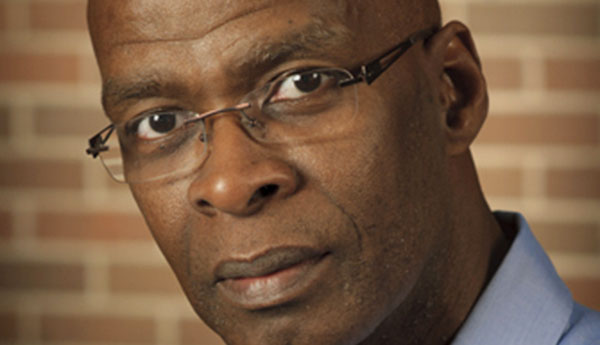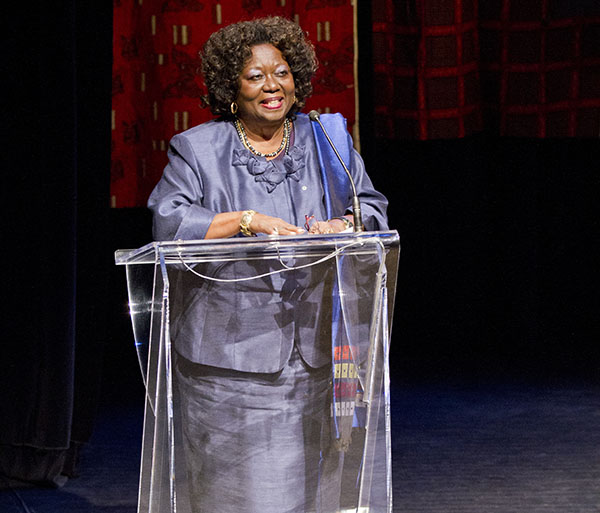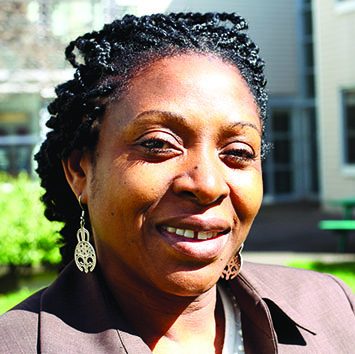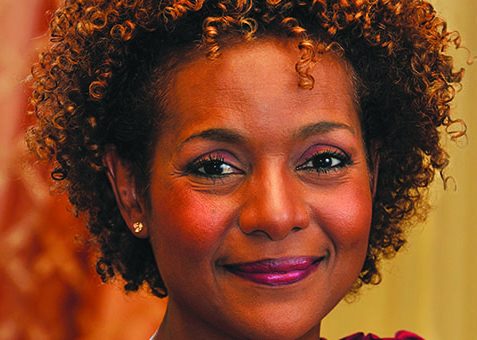By Neil Armstrong
PRIDE Contributing Writer
Dr. Carl James has been appointed the new Jean Augustine Chair in Education for a five-year term, effective July 1, 2016.
The announcement was made on May 16 to faculty members in an email from Professor Ron Owston, Dean of the Faculty of Education at York University in Toronto.
Dr. Owston said James is well known by all in the faculty and brings a strong record of scholarship and community engagement to this key position.
“As Chair he will focus on addressing issues and concerns related to marginalized people within a framework of equity, inclusivity, and social justice,” he said.
James joined the faculty in 1993 after holding various community and instructional positions and receiving his PhD in Sociology from York in 1986.
“I am very glad to be doing it and I see it as having opportunities and providing opportunities that I think I would like to take advantage of and engage,” said James.
The inaugural Chair was Dr. S. Nombuso Dlamini, who joined York University in January 2010, was born in South Africa and taught at the University of Pretoria, South Africa; Mount Saint Vincent University, Halifax; University of Windsor, Ontario, where she held the position of Research Leadership Chair.
Dr. Jennifer Kelly of the University of Alberta was the Visiting Jean Augustine Chair for 2015-2016.
Dr. James said the Jean Augustine Chair in Education and the New Urban Environment, established in June 2008, has been supported significantly by members of the Black community.
He wants to explore what opportunities the Chair opens up for the Black community.
A gift from Augustine, the first black woman elected to the Parliament of Canada and former Ontario Fairness Commissioner, created the Chair and she welcomes the appointment of James.
“I am very pleased about that. I am happy that the mission, the aim, the objective of the Chair, that Carl understands. Carl is the quintessential researcher, writer and someone who knows the community and knows the issues that face the community. And has always been very supportive of initiatives that would ensure that our community’s history, that our community’s record, that our community’s concerns are addressed,” she said, noting that she has great respect for his work and his scholarship.
The former Member of Parliament wants the work that the Jean Augustine Chair has been doing so far to continue but also wants to ensure that it meets community need.
“York University is located in an area where a lot of people from the African and Caribbean community reside and I think it’s a resource that should be made use of, especially with the university’s presence in that neighbourhood.”
She said the Chair is in a very special place to prepare teachers and educators to address educational, community, poverty and socio-economic issues.
The Chair was supposed to raise $3 million so that it would become endowed and money will be there in perpetuity. For a Chair to be endowed, it has to raise that sum of money.
However, so far fundraising efforts have raised $1.8 million and Augustine said there is still $1.2 million to go in order for the Chair to be fully funded.
“The way endowments go, you put the pool of money into the endowment and the interest from the endowment is what pays for the work of the Chair. And therefore this goes on in perpetuity. If you keep your $3 million there in perpetuity then you just live and work off the proceeds, which is usually between five, seven percent, I’m not too sure, of $3 million, which is not bad. But at the same time we’re not yet up to the $3 million so we’re working with whatever percentage from the $1.8 million that we have in there. So we still have quite a bit of fundraising to go.”
Dr. James said York University has been subsidizing the Chair because the full amount was not raised and lately the university has been saying it has no money so there are various roads of development for the Chair ahead.
Ultimately, Augustine does not want the university to be chipping in because the Chairs that exist in other studies – Polish, Ukrainian, Islamic, Jewish, etc. – do not have the university subsidizing them.
“My sense is that if we as a community can throw something into the university then we can hold the university responsible for some issues that we want to address. We can approach the university because we are investors in the university, as it were, and so this is why I would like to see our community think about it in that respect,” she said.
Dr. James said sometimes people would say that there are not enough wealthy people in the Black community to raise the funds needed but he does not necessarily subscribe to that.
“If you think about the millions that Obama raised to become president or you think of how Bernie Sanders is raising money, everybody poured in together their little resources that could also influence getting the money. And I also think if 500 people give money to the university that’s 500 people the university should know exist somewhere in the city that has funded it, compared to just one person. If one person gives, the university will, of course, recognize the one person but sometimes the masses need to be recognized as well. That recognition can come if the masses also contribute to these kinds of opportunities.”
Augustine says this is how she has been pushing the fundraising over the years. She has held several fundraisers where people have pledged to give a certain amount over two years or five years and there are many names that are at the university now as a result of the fundraising.
“And so my hope, it started out with the hope, that we, as a Black community, we as a diasporic community we would have been able to come up with $3 million and fund this Chair so that our young people going through the university can see something that reflects them. But we have not been able to do this in our community despite my best efforts so I’m hoping that again with Carl’s presence and support that we’ll be able to get that fundraising going again so that we could finish off this Chair because it would be nice if we can have it fully funded and use the resources to have all the necessary support and programs to the holder of the Chair.”
Sharing some of his ideas for the Chair, James said for a long time “we have been paying attention to education in the community and we see education, as a community, as the way that we’re going to be able to make it in this society.”
“And we’ve done a lot of work with schools and high schools, etc. but I really don’t think that we’ve paid enough attention to university. And we have been sending a lot of our students to university,” he said, noting that there are many scholarships from organizations, like the Black Business and Professional Association.
“But we never pay attention to what happens. We are concerned about the curriculum that they get in high school but we have never been equally concerned about what information are they getting at university once they get there. I think we need to start paying attention to the university because, after all, it’s that place that we’re sending our young people to so that they can come out to provide for themselves and possibly for the community.”
He said the scholarships are fine but they are not helping African Canadians to make any kind of toehold or influence the infrastructure of the university.
Dr. James said universities are publicly funded, just like school boards, and universities should be responsible for the community and the community should be interested in what goes on in university.
“As students become more interested in going to university, I think we need to pay attention to it as a community.”
He said Research Chairs are very big and popular in the States and there are lots of them in Canada but there are no Research Chairs in Canada that “really look at issues related to the Black community.”
Dr. James said the James R. Johnston Chair in Black Canadian Studies at Dalhousie University in Halifax, Nova Scotia, established in 1991, is not fully funded despite the years that it has been in existence.
He said it exists because Dalhousie University enables it “but when we have these precarious situations these things are not going to last so we need, as a community, to pay attention.”
Professor Afua Cooper, the current James R. Johnston Chair in Black Canadian Studies who was appointed in May 2011, says it is not fully funded.
“We now have a fairly new president and he says he is committed for that to be realized. The pursuit of Black knowledge is still difficult, and we in the Black community are not mobilized in such a way as to ease that difficulty,” said Cooper who is also the Chair of the Black Canadian Studies Association.
The goal of the Chair is to develop Black studies in Canada, to produce significant scholarship, and to create bridges between academia and the wider African descended communities.
The first Chair was lawyer and educator Esmeralda Thornhill, appointed in July 1996, followed by Professor David Divine, 2004-2011.
In March 2009, the Michaëlle Jean Chair in Caribbean and African Diasporic Studies was launched at the University of Alberta.
It was to focus on migration, diaspora and citizenship, addressing some of the opportunities and challenges associated with migration and the settlement of new citizens.
“The intention was to have an endowed chair at the University of Alberta named in honour of Mdme Michaëlle Jean. Unfortunately fundraisers were unable to raise the necessary $1.5 million from community members. The University of Alberta then decided it could no longer support fundraising for the Chair. It was decided that monies already raised would be used for a bi-annual lectureship,” said Dr. Kelly.
The inaugural lecture was presented by Mdme Jean in 2014 and Dr. Kelly said they are planning to continue to raise funds for the annual lectureship.
James says the Jean Augustine Chair, in terms of his interest in it, is not necessarily to just simply talk to marginalized communities.
The Jean Augustine Chair in Education in the New Urban Environment was set up to “enrich a multitude of activities at York University with research and academic expertise in the areas of educational policy and practice, immigration, community engagement, and cultural diversity.”
It will also support Canada’s next generation of teachers, educational leaders and researchers working to improve schooling in metropolitan cities.
But James says the Chair offers a significant potential and he sees it as talking to and helping to pay attention to the African Canadian community.
The veteran educator also sees the Chair as opening up spaces for the community to engage in university activities.
He said if the Chair is nicely funded and fully funded and it would have funds for research, this means the Chair could also be responding to community questions around research on social, educational and other issues.
Dr. James also sees the Chair as being the hub of asking community questions and providing opportunities for community people.
He said in universities in the States sometimes they give a person who works in a community agency an opportunity to spend a year, two years or six months doing work in the university.
“I also see possibilities for PhD students getting a fellowship, a post-doc after they finish their PhD where they can do research and where they also get opportunities to write because increasingly universities are trying to get PhD people to get out of university within four or five years. Getting hired as a professor, once you finish university, is going to be related to how much research have you done, how much publications you’ve pumped out, etc. And when PhD students spend all their time doing their own work in order to graduate, they need sometimes post-doc opportunities to be able to fulfill some of the possibilities that they might have.
“And we just can’t anymore rely on SSHRC (Social Sciences and Humanities Research Council of Canada). SSHRC is cutting back on the amount of money they give research and the amount of research that people get so we can’t rely on those sources so we going to have, as a community, to be able to go out and put in place some of those sources. Those are some of the things I’m thinking of and it would be interesting to see those kinds of encouragement of the community to look at university because after all, through government, they can control university or they can have input into universities.”
James said when one looks at the representation of faculty members at universities very few of them are black and it is a similar situation in the number of black students in PhD programs relative to the numbers in universities.
He wants to shift the focus of the community from other levels of education to what’s happening in post-secondary education.
The educator has published some 35 refereed articles and 60 book chapters and given an exceptionally large number of conference papers and invited addresses.
Dr. James was founding director of the York Centre for Education and Community and has been a visiting professor at a number of universities both in Canada and abroad.
In recognition of his many accomplishments, James received an honorary Doctorate (Education) from Uppsala University and was appointed a Fellow of the Royal Society of Canada – Academy of Social Sciences.
He also is recipient of the Jackie Robinson Fortitude Award, the Harry Jerome Professional Excellence Award from the Black Business & Professional Association, and the William P. Hubbard Award for Race Relations among others.
A gathering to publicly honour Dr. James’ appointment and to thank the many donors to the Chair will be held on August 24.
They will be told what has happened so far since the Chair was established and the new directions for it in the future.
Dr. James said the Jean Augustine Chair will have an annual public lecture which will be an opportunity for communities to come to the university and for the university to have somebody to talk to issues related to the communities.
He also plans to have an advisory committee for the Chair which will include community members.
 Pride News Canada's Leader In African Canadian & Caribbean News, Views & Lifestyle
Pride News Canada's Leader In African Canadian & Caribbean News, Views & Lifestyle








